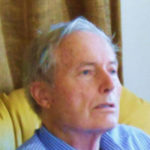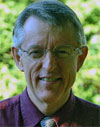Economic Theory and Community Development: Why Putting Community First Is Essential to Our Survival
REVIEWS, 25 Jul 2022
Michael Francis Britton – TRANSCEND Media Service
New book by Howard Richards with the assistance of Gavin Andersson. Foreword by Evelin Lindner. Lake Oswego OR: Dignity Press, 2022. Available on Amazon and other sites as a print book and as a Kindle ebook.
This book is not the boring, unreadable stuff I’d come to expect of economics. I only took up this book, Howard Richard’s crowning masterpiece, because it promised to address hopes for a better world, the rights of everybody to dignity and a decent livelihood, and the need we all have to do things that matter to others, to contribute what we can so we feel good about ourselves and thankful for each other. As a retired psychotherapist, those are things that matter to me, and, I think, to all of us. The book goes after big questions about economics itself that bear on our daring to hope. Economists argue that we have the only approach to economics possible, but is that true? Could life be much better even though they say not? A book that answered those questions was a book I wanted to read.
Permit me to walk you through a few of the big discoveries waiting for you in this most surprising of books. Howard began by demolishing illusions that keep us feeling economic life is so complicated and daunting we’d rather do anything other than look into it, beginning with confronting the implicit denigration of you and me when we dare want to understand how our economic world actually works, the unspoken message: How could the likes of you and me possibly understand economics? We’re just not up to the task. Economics is science, like rocket science, and we shouldn’t expect to “get it,” ignorant as we are. This belongs in the hands of professionals.
It turns out economics is not a science. Economists live and work inside a particular world and its economic system. They are insiders reflecting on what they notice going on in their world, thinking about how it works and committed to sustaining that world. In short, economics is the ideology of a given economic system. It justifies what’s done, glosses over discrepancies, promises success to the initiated, and ignores big questions like: Is this really life as we want it to be? The field will deaden your interest with its equations long before you realize none of those equations will take you there.
As for the economic system we in the US live inside, it’s built on the talking point that a pure market economy (pure capitalism), when done correctly, will make everyone happy, which in real world speak means everyone will have a decent, paying job. But not so. You’ll discover in this book that a pure market economy is not capable of producing full employment. Ever. No matter what you do about it. In this system you cope with that reality by “realizing” that caring about the left-outs is not helpful, necessary, or worth your while. It’s their fault that they’re not working. (Even though there cannot be enough jobs for all in this system.) Why not? Read the book, it’s as close to a thriller as economics gets.
Facing that unpleasant reality led to a second system, liberal national economies, as in the Swedish model. The people at the heart of those systems do care that every last person have a decent life and every last person have dignity in life. And they think they have a method: Combine high taxes with redistribution and plentiful government services, and everyone will be living well enough, the economics of the safety net. But as it turned out, this does well for awhile but cannot endure for the long haul. Howard spells out why, and it’s not about abstractions. In Sweden it was about a few companies like Volvo, who for awhile carried the whole country into universal dignity. And then they couldn’t. And you can understand how it all worked!
By the time I’d gotten that far into the book, I had the exhilarating realization that I felt educated in economic reality for the first time in my life. I could grasp how countries actually work, not obscured by that deluge of concepts, mechanisms and regulations that threaten to drown us any time we ask about economics. I wasn’t getting a pseudo education, I was learning how things really work. And that’s when I realized economics presents us with a million variables, all of which are to be known and understood in depth if we’re to understand anything at all, a message that leaves us confused, numb and unable to get away from the subject fast enough. Economics as is keeps us on the outside of what really goes on, making us ignorant and stupid – which is to say powerless. Economics is a matter for the big boys, which is to say the ones with power and those who work for them. Democracy it’s not.
None of these existing models can deliver the life all of us would hope for, not on a sustained basis. And here Howard – economist, historian and philosopher by dint of training and immense research and work – really comes into his own. Underlying every model of economic life that we have is a broader understanding of who we are to each other, what roles we play in each others’ lives, and what this life together is all about. That understanding is the heart of a culture’s social structure, the human-to-human relational attitudes that give sense and form and direction to pretty much everything. The social structure underlying our world responds to ‘Who counts?’ with ‘not everyone.’ And to ‘What counts?’ with a sense of life and what we humans love narrowed down to economic outcomes, a rich sense of human liveliness missing from its horizons. In this part of the work we’re in the presence of genuine wisdom. The book not only walks us through economics, it is a walk up the mount to transformative vision, transformative for readers and for the world as it is. And so the big shocker: This world really can be different, just like in our heart of hearts most of us long for it to be.
A clear, wise, knowledgeable, competent populace should be the goal of economics and is the goal of this book. It walks us right up to the edge of the economics of a world we all want and can’t quite articulate or imagine due to being so immersed in what is, and then takes us right into how to approach all of economic life differently, as if the riches of human creativity and liveliness matter and the dignity of all lives matters, and all of this is workable, within our reach. So what’s the path, you ask? For that you have to read the book!
***
A clear, wise, knowledgeable, competent populace should be the goal of economics and is the goal of this book. It walks us right up to the edge of the economics of a world we all want and can’t quite articulate or imagine due to being so immersed in what is, and then takes us right into how to approach all of economic life differently, as if the riches of human creativity and liveliness matter and the dignity of all lives matters, and all of this is workable, within our reach. So what’s the path, you ask? For that this is the book to read!
_____________________________________________
 Prof. Howard Richards is a member of the TRANSCEND Network for Peace Development Environment. He is a philosopher of social science and Research Professor of Philosophy at Earlham College, Richmond, Indiana, USA. He was educated at Redlands High School in California, Yale, Stanford, University of California at Santa Barbara, University of Toronto, Harvard and Oxford. He currently teaches in the University of Cape Town`s EMBA programme. His books include: The Evaluation of Cultural Action, a study of an application of Paulo Freire´s pedagogical philosophy in rural Chile (London Macmillan 1985); Letters from Quebec; Understanding the Global Economy; The Dilemmas of Social Democracies; Gandhi and the Future of Economics; Rethinking Thinking; Unbounded Organizing in Community; and The Nurturing of Time Future. His new book, written with the assistance of Gavin Andersson, Economic Theory and Community Development: Why Putting Community First Is Essential for Survival, is now available from the publisher, Dignity Press, and from Amazon and other major booksellers, as a print book and as an eBook. howardri@earlham.edu
Prof. Howard Richards is a member of the TRANSCEND Network for Peace Development Environment. He is a philosopher of social science and Research Professor of Philosophy at Earlham College, Richmond, Indiana, USA. He was educated at Redlands High School in California, Yale, Stanford, University of California at Santa Barbara, University of Toronto, Harvard and Oxford. He currently teaches in the University of Cape Town`s EMBA programme. His books include: The Evaluation of Cultural Action, a study of an application of Paulo Freire´s pedagogical philosophy in rural Chile (London Macmillan 1985); Letters from Quebec; Understanding the Global Economy; The Dilemmas of Social Democracies; Gandhi and the Future of Economics; Rethinking Thinking; Unbounded Organizing in Community; and The Nurturing of Time Future. His new book, written with the assistance of Gavin Andersson, Economic Theory and Community Development: Why Putting Community First Is Essential for Survival, is now available from the publisher, Dignity Press, and from Amazon and other major booksellers, as a print book and as an eBook. howardri@earlham.edu
 Michael F. Britton, Ed.D. is the recipient of the 2017 Human DHS Lifetime Commitment Award and a member of the Human Dignity and Humiliation Studies Board of Directors. Concerned with integrative thinking across neuroscience, in-depth psychotherapies and historical/cultural living, Michael Britton’s work looks at how participation in the historical life of our times and interior life are deeply intertwined. His earlier research looked into experience by US military in planning and commanding nuclear weapons in the Cold War; kinds of parenting that help children grow to do well in love as adults; kinds of parenting that make it harder for battered women to take action on their own behalf; and psychological attitudes towards existing and hoped for worlds reflected in traditional, modern and postmodern architecture.
Michael F. Britton, Ed.D. is the recipient of the 2017 Human DHS Lifetime Commitment Award and a member of the Human Dignity and Humiliation Studies Board of Directors. Concerned with integrative thinking across neuroscience, in-depth psychotherapies and historical/cultural living, Michael Britton’s work looks at how participation in the historical life of our times and interior life are deeply intertwined. His earlier research looked into experience by US military in planning and commanding nuclear weapons in the Cold War; kinds of parenting that help children grow to do well in love as adults; kinds of parenting that make it harder for battered women to take action on their own behalf; and psychological attitudes towards existing and hoped for worlds reflected in traditional, modern and postmodern architecture.
Tags: Economics, Literature, Reviews
This article originally appeared on Transcend Media Service (TMS) on 25 Jul 2022.
Anticopyright: Editorials and articles originated on TMS may be freely reprinted, disseminated, translated and used as background material, provided an acknowledgement and link to the source, TMS: Economic Theory and Community Development: Why Putting Community First Is Essential to Our Survival, is included. Thank you.
If you enjoyed this article, please donate to TMS to join the growing list of TMS Supporters.

This work is licensed under a CC BY-NC 4.0 License.